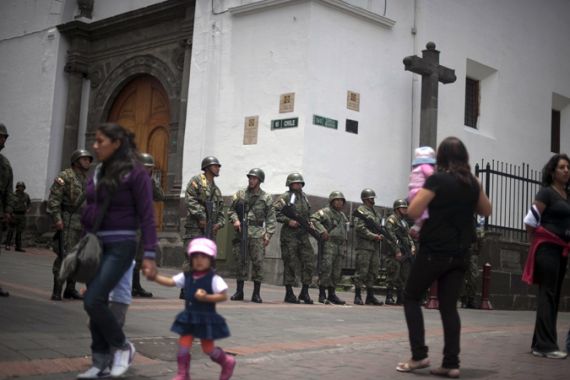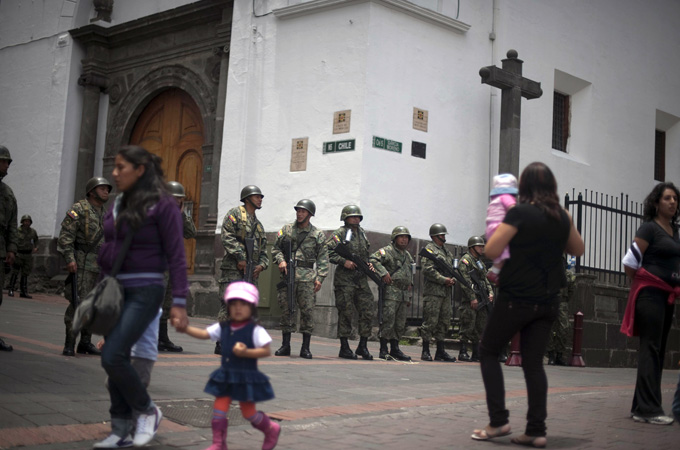Ecuador extends emergency rule
Ecuadorean president Rafael Correa extends emergency rule over last week’s police unrest.

 |
| The state of emergency empowers the military, which remained loyal during the police uprising last week [AFP] |
Rafael Correa, Ecuador’s president, has extended until Friday a state of emergency that was imposed in response to a police uprising last week.
Correa said on Tuesday he acted at the request of congress members who questioned whether the police could be relied on to keep order.
“I have lost all confidence in the police who were here,” said the president of the Congress, Fernando Cordero, who suspended sessions of the legislature until Thursday.
The state of emergency empowers the military, which remained loyal during the police uprising last Thursday, to carry out law police functions.
Angry police took to the streets in the volatile Opec-member country last Thursday over a law that reduced their bonus pay.
They held President Correa in a police hospital for 12 hours until he was rescued by army commandos in a hail of gunfire.
Deadly confrontation
At least four people died in the confrontation, with four more killed and almost 300 injured across the South American nation during looting as the police went on strike.
Correa, a fiery leftist allied with Venezuelan President Hugo Chavez, called the incident a coup attempt.
Correa has majority support in Ecuador’s 124-member Congress. But his legislative agenda has been deadlocked by disagreements within his coalition over bills that have drawn public criticism, such as proposals to reform state finances and the higher education system.
After the uprising, the government agreed to raise wages in the armed forces and police. The government said the pay increases had long been in the pipeline and it was merely chance they were approved just days after the police revolt.
Correa said over the weekend that the curtailing of bonuses and perks for police, soldiers, firefighters and other public employees had been more than offset by base salary increases granted since he first took office in 2007.
The riots were a reminder that Ecuador is one of Latin America’s most turbulent countries, with three of eight presidents having been toppled in the decade before Correa brought a degree of stability with his 2006 election.